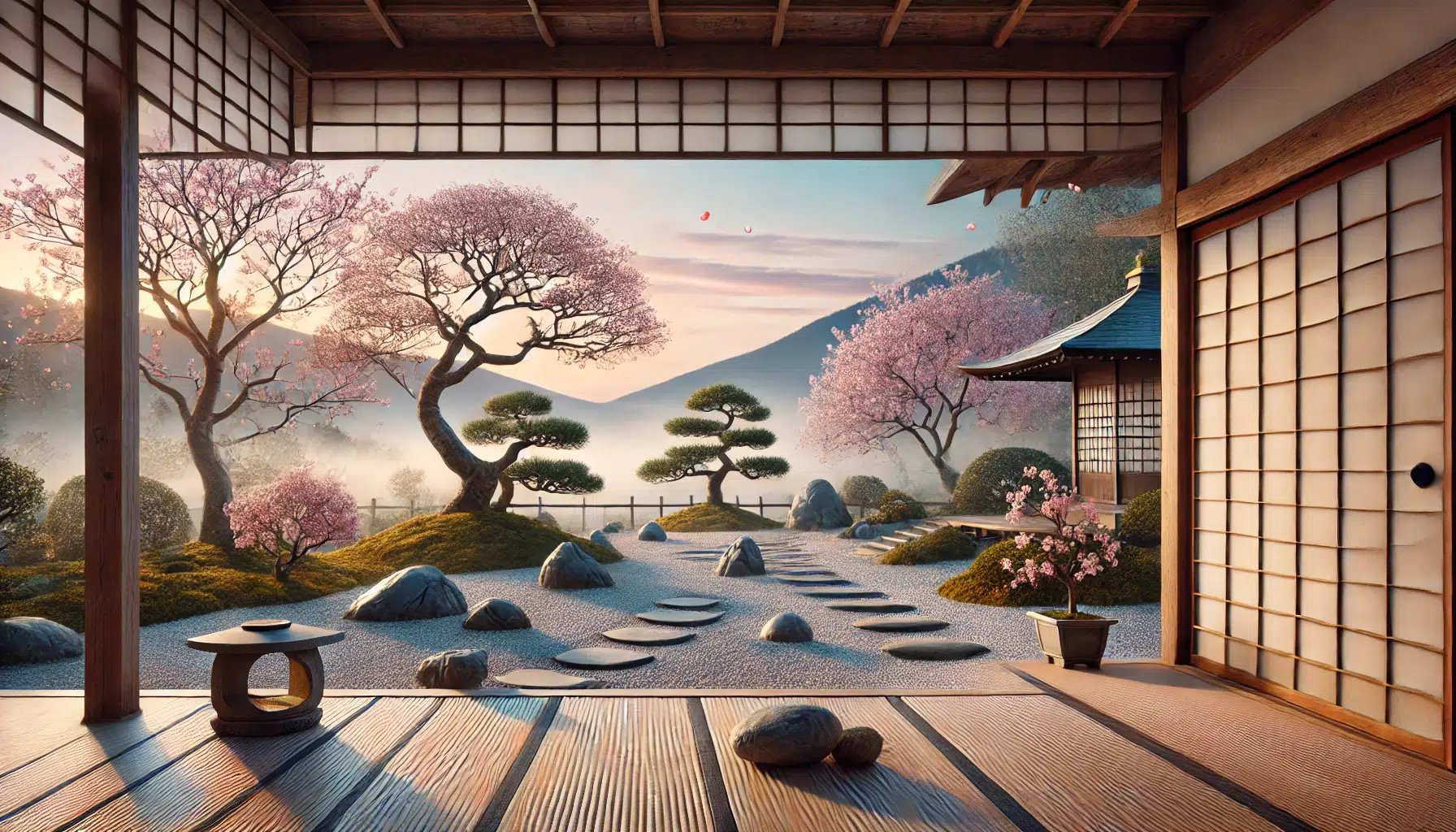Every culture is unique and offers philosophies that can teach us new things about ourselves and the world around us. In the modern age, globalization has made some of these philosophies more accessible to us. However, certain Japanese philosophies may still seem unfamiliar to those in Western and Middle Eastern cultures. While we might have a general understanding of these philosophies, there are hidden gems that everyone should know about. Here are three Japanese philosophies that could enhance the lens through which we can view life.
1) Ikigai
Pronounced ‘ee-kee-guy,’ this is one of the most popular concepts that has emerged from Japanese culture. The word ‘Iki’ translates to ‘life’ or ‘living,’ while ‘gai’ translates to ‘worth,’ ‘value,’ or ‘reason.’. So, what does Ikigai mean? In essence, it is your ‘reason for being’ or ‘reason to live.’
Ikigai is an interesting concept that attempts to satisfy four fundamental elements of our lives, these are:
- Passion: What we enjoy doing
- Profession: What we’re good at
- Mission: What the world needs
- Vocation: What we can get paid for
The practice of Ikigai is well-known among the people of Okinawa, who are celebrated for their simple lifestyles, health-conscious practices, and remarkable longevity. It is believed that when a person aligns the four elements of Ikigai, they can achieve a happy and fulfilling life.
Work no longer becomes just a means to an end; it becomes a purpose. If you’re good at it, it will provide you with a sense of adequacy. Passion will fuel your journey, and getting paid enables you to continue doing what you love. While this may sound similar to the cliché ‘if you love what you do, you’ll never work a day in your life,’ Ikigai offers a more nuanced perspective. It doesn’t claim that if you love being a lawyer, going to court will never feel like work. On the contrary, Ikigai acknowledges that what you choose to do is still work. However, if it has purpose and meaning for you, and satisfies the key elements above, you will live a fulfilling life full of joy.
This shift in mentality moves us from longing for retirement to fully embracing each day with purpose and passion. Interestingly, there is no word in the Japanese language that directly translates to the concept of leaving the workforce for good (retirement). Work transforms from a mere chore into something meaningful when we find purpose and fulfillment in it. Much like how we don’t see a workout as ‘work,’ even though the word ‘work’ is in the name.
While some people find their Ikigai in their work, others can find it other simple things in life. Pursuing a hobby, raising a family, or engaging in community work can for example give a person a sense of meaning and purpose.
A great resource to better understand this concept is the book Ikigai: The Japanese Secret to a Long and Happy Life by Héctor García. It’s an enjoyable and well-written exploration of the concept of ikigai and the longevity of the Okinawan people.
2) Wabi-sabi
Wabi-sabi is a worldview that challenges the notion that everything beautiful must be perfect. It embraces the idea that there’s inherent beauty in imperfection and impermanence. We encounter imperfection all around us, but societal conditioning and internal biases can cloud our judgment about what truly makes something beautiful.
A good example that illustrates this concept is the aesthetic of an old photograph. The photograph may be faded, old, dusty, or even partially torn, yet there’s inherent beauty in such a presentation. In fact, there are apps on smartphones that can transform your modern photo into an old one using a filter.
Another example includes a flower with falling petals, perhaps withering. While our idea of a beautiful flower often involves a healthy, bright, and upright, the withering flower offers a different perspective. It’s about taking a moment to appreciate the beauty not in how the flower currently looks, but in the process it took to get there—the natural lifecycle that transformed what was once a mesmerizing fresh bloom into its current state of withering.
It doesn’t have to be an old object to reflect this philosophy; even the simplicity of everyday things can do so. Wabi sabi reflects the notion that less is often more, and that beauty lies in simplicity. This is why minimalist architectural designs and certain forms of modern art are so captivating.
We ourselves are imperfect, and the beauty we hold beyond our imperfections is an embodiment of wabi-sabi. We may see a person as perfect because we look beyond their imperfections; in fact, sometimes their imperfections are what make them perfect.
As the writer Beth Kempton beautifully expressed in her book Wabi-Sabi: Japanese Wisdom for a Perfectly Imperfect Life: “Wabi-sabi is an intuitive response to beauty that reflects the true nature of life”. Indeed, it can be difficult to articulate why handmade pottery, with its visible cracks and asymmetries, captivates us, or why fallen leaves create such a lovely adornment along our path.
Within us lies an untapped appreciation for imperfection that, when embraced, reveals the inherent beauty of this perfectly imperfect life.
3) Shinrin-yoku
Translating to ‘forest bathing’ or ‘taking in the forest’s atmosphere,’ this concept involves our union with nature. It suggests that spending time in nature and absorbing what it has to offer can enhance our overall well-being.
In Okinawan culture, Shinrin-yoku is a prevalent practice among its long-lived population. It is more than just being in nature; it’s about doing so with intention. This means being mindful of the color of the trees, the grounding feeling of grass under our feet, and the gentle breeze that may brush against our face.
The next time you go for a walk, try this: pause and observe a plant or tree for one minute. Notice how the leaves move, how bright the colors are, which parts of the leaves produce sound if there’s wind, and how the leaves feel in your hand. Adding mindfulness to how we experience nature allows us to fully digest it—not just through our sight, but with all our senses, including our thoughts and emotions.
Forest bathing is a powerful tool that reconnects us with our roots, allowing us to become one with nature. Our modern lifestyle is evolving faster than our bodies can adapt. While we are highly adaptable and may not immediately feel the drawbacks, we do have an awareness of the impact. This is why many of us are choosing to eat organically, exercise more, and seek stronger connections with one another. In this context, mindfully immersing ourselves in nature is just as important to our overall well-being as these other efforts.
These are just a few of the many life-transforming Japanese philosophies. When it comes to personal growth and self-improvement, one of my favorite approaches is learning from other cultures. No culture is perfect, but every culture offers wisdom that brings us closer to the person we strive to be. It’s a bonus when the wisdom transforms the way we see life and deepens our appreciation for it.


